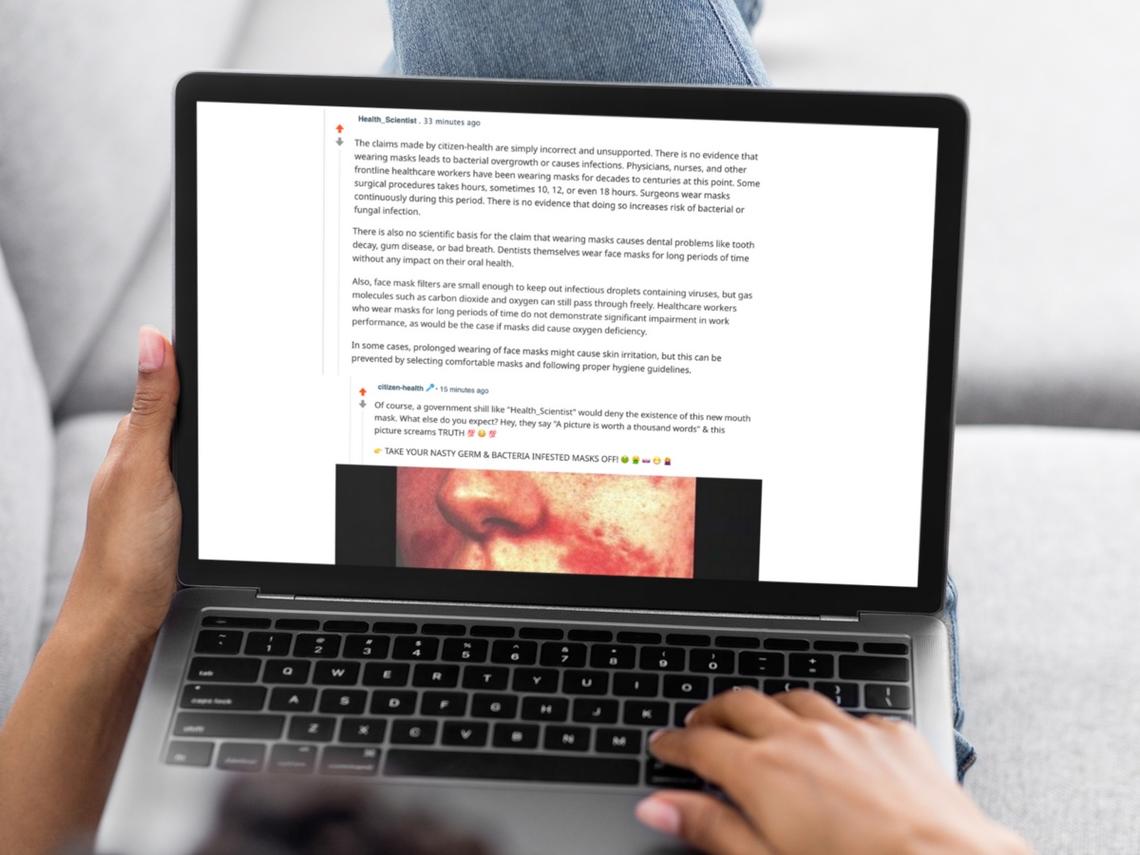July 27, 2022
COVID misinformation on social media: The unintended consequences of debates

Think back to October 2020 — just over six months into the COVID-19 global pandemic. It would still be three months until the first COVID-19 vaccines were beginning to be distributed. Social media channels were buzzing. Information was a hot commodity and misinformation was spreading rapidly. Haskayne’s Dr. Mehdi Mourali, PhD and his co-author Dr. Carly Drake, PhD, from North Central College, took this opportunity to dive in to see how people react to social media debates around masking. What they found was that more information was not always better.

Mehdi Mourali
Marnie Burkart, Jazhart Studios Inc.
Their approach was unique. Previous studies have typically focused on a misinformation and a correction. Mourali and Drake tested how participants react to an ongoing debate. This provided valuable insights not previously captured in research.
“In real life when you look at social media, people don't just take a correction and then say, ‘Oh sorry I was wrong.’ So often what happens is that people who are spreading misinformation are doubling down,” says Mourali. “It often leads to long discussions that are not always friendly. And people observing are also affected by that.”
In their study, "The Challenge of Debunking Health Misinformation in Dynamic Social Media Conversations: Online Randomized Study of Public Masking During COVID-19," Mourali and Drake captured the attitudes and intentions toward wearing masks in public of 500 U.S. residents and then they were randomly exposed to one of four situations and found interesting results:
- Misinformation only — negatively impacted attitudes and intentions toward masking
- Misinformation plus correction — improved attitudes and intentions toward masking.
These results were as expected from previous studies.
In addition to the above situations, some participants were exposed to:
- Misinformation plus correction plus rebuke
- Misinformation plus correction plus rebuke plus second correction.
In both these cases, any improvement in attitudes and intentions created from the initial correction were eliminated. It seems that the debate had participants beginning to doubt whether there was one correct answer and they were left feeling less confident in either direction. This doubt most likely results in inaction, in this case not wearing a mask, the same action that people who believe the misinformation would take.

The misinformation in the study was adapted from real Reddit posts and the corrections were adapted from responses by the International Fact Checking Network.
“We need to investigate more these unintended consequences of getting into these debates because most people are doing it with the intention of correcting information,” says Mourali. “You can’t just ignore, you have to address this information, but what we're finding with this research is it's actually not that straightforward. Depending on how the debate goes people may give up on finding the truth or begin to believe there's no objective truth at all.”
Misinformation was more likely to be shared by participants when its content was consistent with their existing beliefs. Interestingly, correcting the misinformation reduced the intention to share it on social media, and this effect persisted even after further exposure to the same misinformation.
The misinformation in the study was adapted from real Reddit posts and the corrections were adapted from responses by the International Fact Checking Network.
“We did this study early in the pandemic so actual opinions or attitudes toward masking were maybe less bipartisan as they are now,” says Mourali. “On social media people share not always with the intention to provide information. Often, it is to foster social bonds, signaling your identity and which groups you belong to.”





